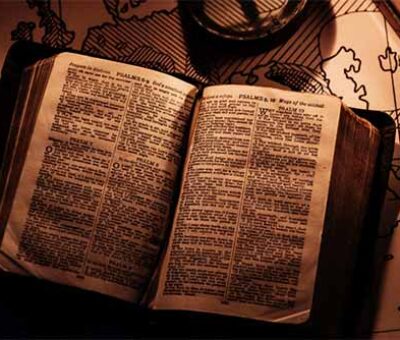Did Jesus Really Exist? – Who Was Jesus Christ?
 Historical Evidence for Jesus Outside of the Bible
Historical Evidence for Jesus Outside of the Bible
Often people are uncertain about the existence of Christ, but few scholars would disagree that a man named Jesus lived roughly between 2 BC and about 33 AD. History documents that he was not a myth but a real person and the historical evidence for this is excellent. For instance, the Roman historian Tacitus, writing in about 115 A.D., records the events surrounding Emperor Nero in July of A.D. 64. After the fire that destroyed much of Rome, Nero was blamed for being responsible:
“Consequently, to get rid of the report, Nero fastened the guilt and inflicted the most exquisite tortures on a class hated for their abominations, called Christians by the populace. Christus [Christ], from whom the name had its origin, suffered the extreme penalty during the reign of Tiberius at the hands of one of our procurators, Pontius Pilate, and a most mischievous superstition [Christ’s resurrection] thus checked for the moment, again broke out not only in Judea, the first source of the evil, but even in Rome, where all things hideous and shameful from every part of the world find their centre and become popular.”
In about 112 A.D. the Roman governor in what is now northern Turkey wrote to Emperor Trajan regarding Christians in his district:
“I was never present at any trial of Christians; therefore I do not know what are the customary penalties or investigations, and what limits are observed. . . whether those who recant should be pardoned. . . whether the name itself, even if innocent of crime, should be punished, or only the crimes attaching to that name. . . . Meanwhile, this is the course that I have adopted in the case of those brought before me as Christians. I ask them if they are Christians. If they admit it I repeat the question a second and a third time, threatening capital punishment; if they persist I sentence them to death. For I do not doubt that, whatever kind of crime it may be to which they have confessed, their pertinacity and inflexible obstinacy should certainly be punished. . . the very fact of my dealing with the question led to a wider spread of the charge, and a great variety of cases were brought before me. An anonymous pamphlet was issued, containing many names. All who denied that they were or had been Christians I considered should be discharged, because they called upon the gods at my dictation and did reverence. . .and especially because they cursed Christ, a thing which it is said, genuine Christians cannot be induced to do.” (Bettenson, p. 3)
These passages indicate that Christianity was wide spread in the Roman empire within 80 years of Christ’s death. Again, these are eyewitness accounts, not historians looking back years later.
The popular historian Will Durant, himself not a Christian, wrote concerning Christ’s historical validity:
“The denial of that existence seems never to have occurred even to the bitterest gentile or Jewish opponents of nascent Christianity”
(Durant, The Story of Civilization, vol. 3, p. 555).
And again, “That a few simple men should in one generation have invented so powerful and appealing a personality, so lofty an ethic and so inspiring a vision of human brotherhood, would be a miracle far more incredible than any recorded in the Gospels” (Ibid., p. 557).
It is a substantial thing that an historian who spends his life considering historical facts should affirm the reality of Christ’s existence as well as the rapid growth of the early movement.
The Jewish historian Josephus, writing for the Roman government in the 70’s A.D. records some incidental things regarding Christ and the church. He confirms that John the Baptist died at the hand of Herod (as recorded in the gospels) as well as the death of,:
“The brother of Jesus, who was called Christ, whose name was James . . . he delivered them to be stoned” (Josephus, Antiquities of the Jews, Book XVIII, ch. V, p. 20; Book XX, ch. IX, p. 140 ).
Again we have sources external to the Bible that demonstrate the historical reliability of the text. Josephus, who was probably alive during the time of Christ, is attesting to the reality of his existence. What this also tells us is that within 40 years of Christ’s death, the knowledge of who he was, was widespread enough that Josephus could reference him and expect readers to know exactly who he was talking about.
Related Topics
Christianity Introduction | The resurrection of Jesus Christ | the Bible as history | Christianity and miracles | the accuracy of The Bible
Christian advice and information about Jesus Christ at christianadvice.net

 Historical Evidence for Jesus Outside of the Bible
Historical Evidence for Jesus Outside of the Bible

